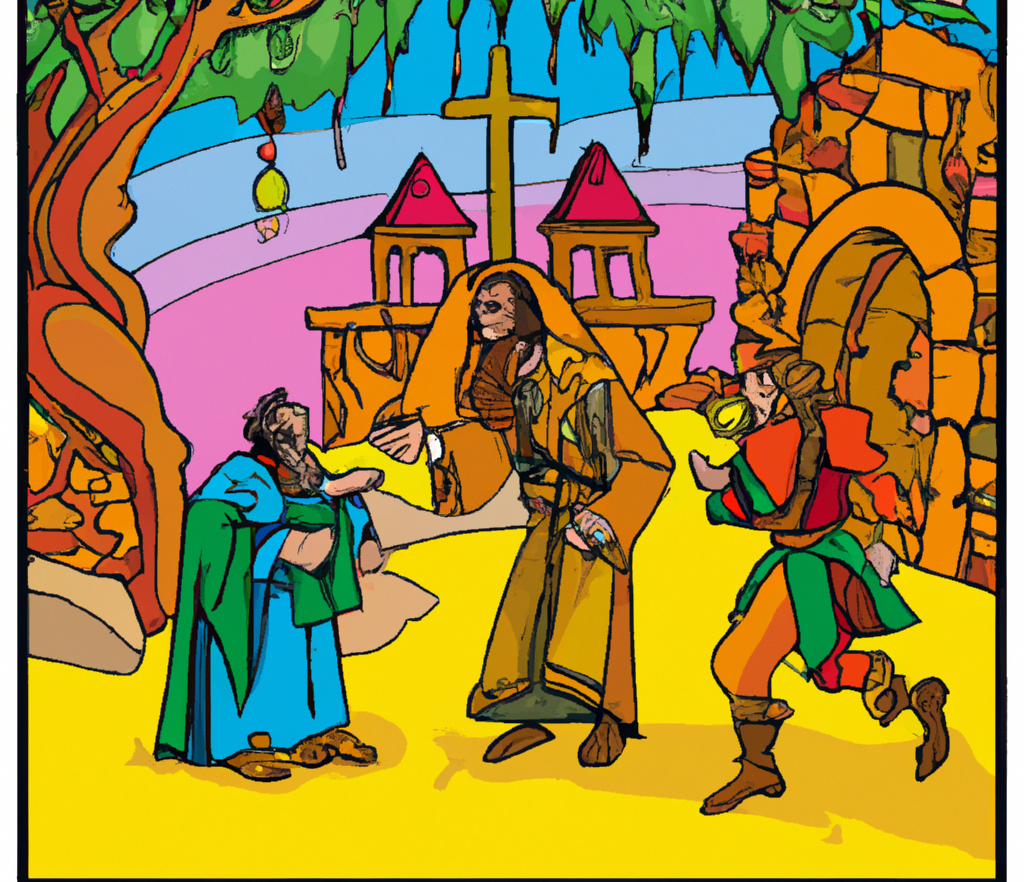Tax Collector Zaccheus 
Just imagine Zaccheus for a moment. He’s a little guy, a little short, which was a different issue back then. You see, height was an issue. Tall people were seen to be powerful, even royal. So, here comes this small man with an unpleasant day job—a tax collector. Tax collectors were greatly despised back then. They were known for lining their wallets, not simply because they collected taxes, but they were swindlers in the open. So, Zaccheus was both short and unpopular—an unappealing combination.
But Zaccheus was desperate to see Jesus. Zaccheus was quick and agile. When the crowds became too dense, he scaled a sycamore tree for a better view. Then, to the chagrin of the multitude, Jesus speaks to Zaccheus in an elegant, surprising manner.
- To find salvation, he ignored society’s standards and public image.
- His physical ascension foreshadowed his spiritual ascension.
‘Zaccheus, hurry and come down because I have to stay at your house today.'” ESV (Luke 19:5)
Jesus validated this location of spiritual longing and promised redemption. He transformed Zacchaeus directly in front of people who thought it was impossible.
“Today salvation has come to this house” (Luke 19:9).
We see God’s great power to transform hearts, no matter how despised or broken they appear, via this meeting with Jesus. It serves as a reminder today that when we direct our focus to Christ, there is hope even in our darkest circumstances.
The Parable of the Ten Minas
The main character, a nobleman, distributes minas (a type of cash) to his servants before departing for a distant region in search of a kingdom.
- God kindly bestows these gifts on us.
- He wants us to use, cultivate, and multiply them.
The narrative unfolds as he returns and realizes that most of his servants have profited from the minas. But there’s one who hasn’t: a shy chap who wrapped his mina up for security, fearful of losing it.
- Our Master demands and rewards responsible stewardship.
- Doing nothing with our “minas” results in loss.
Now, the story starts to get interesting. Profitable individuals are given cities to rule over. Doesn’t it sound like a good deal? But what about the one who hid his mina?
‘And he said to those watching, ‘Take the mina from him and give it to the one who has the ten minas.” (E.S.V., Luke 19:24)
It reminds us that we have all been given gifts from God, whether they be financial blessings, abilities, opportunities, or relationships, and that we must invest in these things diligently for them to grow fruit.
Furthermore, this tale emphasizes taking risks to expand God’s Kingdom. Because they ventured out in faith and used their abilities correctly, the servants who took the initiative were lavishly rewarded.
“Well done, my good servant!” Luke 19:17.
King Jesus Returns to Jerusalem
As we continue through Luke 19, Jesus rises and decides to glide into Jerusalem. I say glide because He chose a donkey as a fine animal worthy of royalty. It is a subtly significant satire of human imperialism, demonstrating Jesus’ humility and refusal to participate in worldly authority.
‘And they brought it to Jesus, and placing their cloaks on the colt, they placed Jesus on it. They spread their cloaks over the road as he went by.” (ESV, Luke 19:35–36)
But they had yet to learn that his mission was much bigger than any earthly empire. He did not come to create a temporal monarchy but to usher in God’s kingdom and to save all humanity.
The entry occurred on what is now known as Palm Sunday, and it was both a joyful occasion and a heartbreaking reminder of what was ahead for Jesus. The same multitude that proclaimed him king would eventually demand his crucifixion.
Despite knowing what was in store for him, Jesus approached this moment with grace and purpose. He recognized that his genuine kingship lay not in temporal power or human adoration but in self-sacrifice and obedience to God’s purpose.
Jesus in the Temple
Then, just as you think Jesus is about to unwind, He visits the temple. His heavenly eyes see the transformation of this sacred area, set aside for divine worship, into a bazaar. That’s only the tip of the iceberg.
Moses’ law was being abused, and the forgiveness of sins was being marketed. The activities fueled the divine fire within Jesus. He turned the tables, drove the moneylenders out, and recovered God’s house.
‘And he was teaching in the temple daily…” Luke 19:47 (ESV).
This dramatic gesture demonstrated Jesus’ desire for righteousness and deep affection for God’s dwelling place. His acts reminded all present that true worship is about sincere devotion to God rather than material gain or commercial trade.
The religious establishment questioned Jesus’ authority in response to his audacious activities. They demanded an explanation for his audacity. Instead of giving them a direct answer, Jesus spoke cryptically about pulling down the temple and rebuilding it in three days.
They had no idea he was talking about his death and resurrection, and how his death on the cross would make him the ultimate fulfillment of temple worship.
Summary
Luke 19 takes us on a transformative journey, emphasizing divine love and our critical role in God’s Kingdom.
- We, like Zacchaeus, are encouraged to seek atonement passionately, regardless of societal judgments.
- We are expected to use God’s gifts wisely and diligently as the servants given minas.
Teach us, Lord, to work ceaselessly for redemption and to steward wisely, knowing that “everyone to whom much has been given, from him much will be required” (Luke 12:48).

